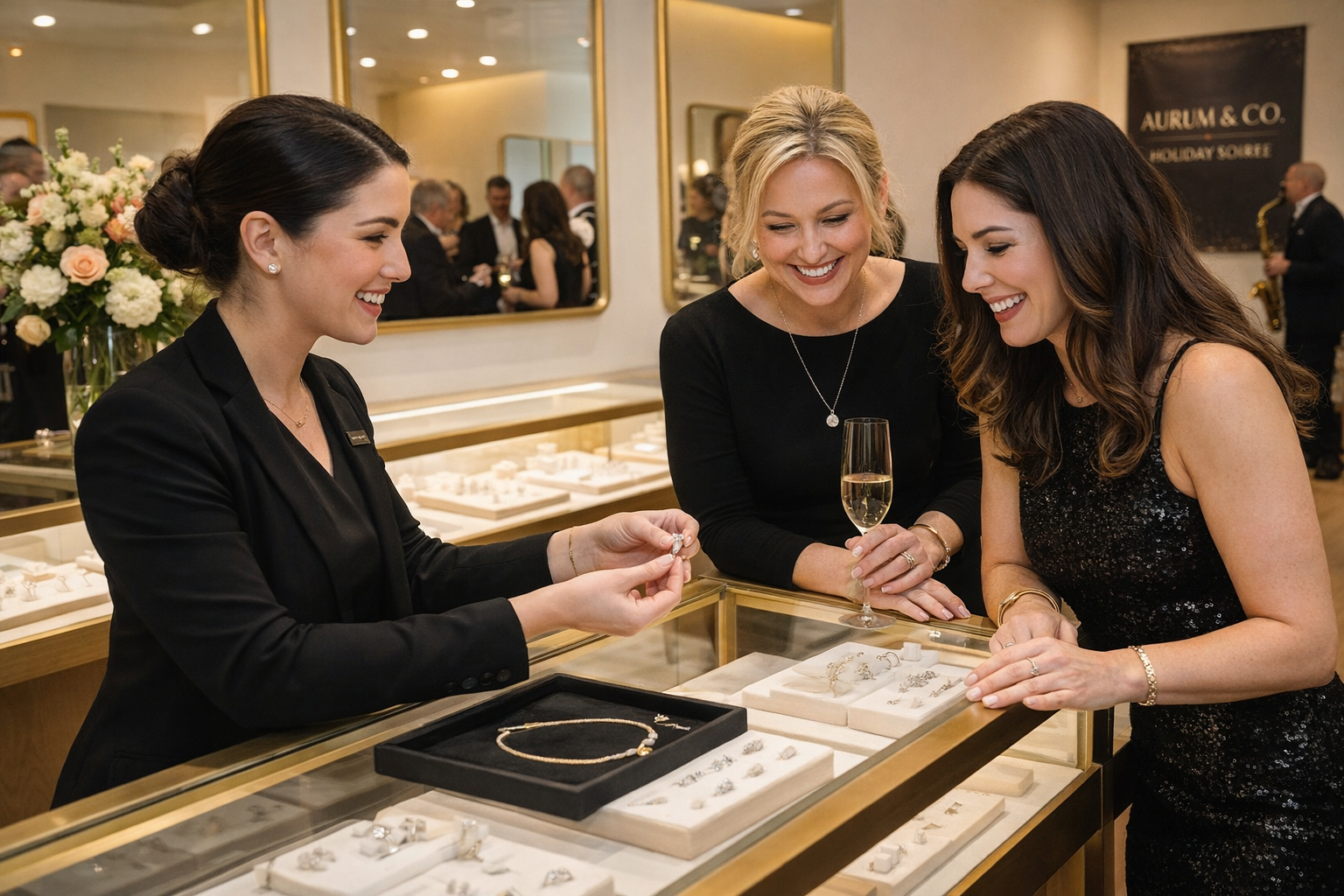New data from Citi shows something enlightening about the jewelry industry: while U.S. luxury spending overall declined in May 2025, jewelry is bucking the trend. Clothing, handbags, and other luxury goods categories are seeing a slowdown, but jewelry sales are holding strong. In fact, jewelry is outperforming nearly every other luxury segment, surging 10.1% year-over-year that month.
So what makes jewelry different? Why is it weathering the storm better than handbags, watches, or high-end fashion?
To understand why jewelry is standing strong while other luxury categories falter, we need to look at the unique qualities that set it apart. These strengths go beyond price points or fashion trends—they tap into something deeper.
Here are four key reasons jewelry continues to shine:
1. Jewelry is emotional
Unlike many other luxury purchases, jewelry carries deep personal meaning. Whether it’s an engagement ring, a birthday necklace, or a piece passed down through generations, jewelry often symbolizes love, commitment, celebration, or remembrance. That emotional weight makes people more intentional, and more loyal, when it comes to where they buy it.
Retailers who understand this emotional connection can deliver experiences that feel less transactional and more meaningful. It’s not just about selling a product—it’s about being part of a moment that matters. When a customer feels understood, seen, and celebrated, they’re far more likely to return, recommend, and become a lifelong client.
2. Jewelry is milestone-driven
Few other luxury products are so closely tied to life events. Engagements, anniversaries, birthdays, graduations, promotions—jewelry often marks the moment. And those moments keep happening, even when discretionary spending tightens. Life doesn’t pause, and neither do the occasions people want to celebrate.
That makes timing a critical part of jewelry sales. Successful jewelers are anticipating needs before a customer walks through the door. They’re sending reminders before anniversaries, reaching out during engagement season, and helping clients plan gifts for important milestones. The more a retailer can associate themselves with a customer’s special moments, the more likely they are to be part of the next one.
3. Jewelry is personal
Jewelry buying is often a high-touch experience. Clients want someone who knows their style, understands their story, and can guide them through a meaningful decision. It's not just about having the right inventory. It's about building trust and delivering a personalized experience.
In contrast to fashion or handbags, where trends and brand names often drive the purchase, jewelry shoppers are looking for a personal connection. They want to work with someone who listens, asks the right questions, and remembers the details that matter. This relationship-based selling approach creates deeper loyalty and higher customer satisfaction.
4. Jewelry rewards follow-up
Unlike one-time luxury purchases, jewelry has built-in opportunities for repeat business. A couple who buys an engagement ring might return for a wedding band, anniversary gift, push present, or even a little just-because sparkle. The retailers who stay in touch post-sale are the ones who turn first-time buyers into lifelong clients.
Following up isn’t just about making another sale—it’s about showing you care. A well-timed message after a purchase, a check-in before a milestone, or a recommendation based on past buys shows the client that you remember them and that you value the relationship. In an industry where loyalty drives revenue, follow-up is one of the most powerful tools a jeweler can use.
Make the most of what makes jewelry special
The jewelry industry has inherent strengths that set it apart—but to capitalize on them, retailers need the right systems in place. That means keeping track of client preferences and milestones, making personalized recommendations, and staying consistent with follow-ups.
That’s where tools like Clientbook come in. We help jewelers turn emotional, milestone-driven, relationship-based selling into a repeatable process that drives results. Because jewelry might be thriving right now, but it’s the jewelers who build relationships that will keep thriving tomorrow.
To see how Clientbook’s clienteling software can help you keep your sales on top, visit demo.clientbook.com

.jpg)
.png)


